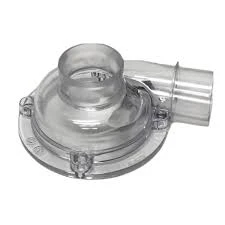Mobile:+86-311-808-126-83
Email:info@ydcastings.com
Exploring Innovative Solutions for Pipe Cap Design and Applications in Industry
The Importance of Pipe Caps in Modern Industry
In the world of industrial applications, the seemingly small components often play pivotal roles in ensuring the efficiency and safety of operations. One such component is the pipe cap, a crucial yet frequently overlooked item. Pipe caps serve as essential fittings that close off the ends of pipes and tubes, providing safety, containment, and aesthetic value in various settings.
Understanding Pipe Caps
Pipe caps are designed to fit over the ends of pipes to seal them, preventing the internal contents from leaking out or external contaminants from entering. They come in various shapes, sizes, and materials, including PVC, metal, and rubber, to suit different applications and pipe specifications. The design of a pipe cap can vary significantly based on its intended use. Some caps feature a simple, round shape, while others might come with specific threading or flanged edges to accommodate different types of fittings.
Applications of Pipe Caps
Pipe caps are utilized in numerous industries, including oil and gas, construction, plumbing, and food processing. In the oil and gas sector, for example, pipe caps are essential for sealing off pipelines during construction or maintenance to prevent leaks and spills. Similarly, in plumbing, they can temporarily close off pipes until further installation or repairs are made. In food processing, hygienic caps ensure that the products remain uncontaminated until they reach the consumer.
Moreover, these caps are not limited to industrial use. Many residential projects incorporate pipe caps to finish off irrigation systems or protect unused plumbing fixtures. Their versatility makes them an invaluable tool for both professionals and DIY enthusiasts.
The Safety Factor
One cannot underestimate the safety implications of using pipe caps
. Improperly sealed pipes can lead to hazardous leaks, exposing workers and the environment to potentially dangerous substances. In industries such as chemical manufacturing, the need for tightly sealed pipes is critical. Pipe caps act as a first line of defense against such hazards, ensuring that substances remain contained and that there is no risk of explosion or contamination.pipe caps

The use of high-quality materials for pipe caps is essential in high-pressure or extreme-temperature applications. A compromise on quality can lead to catastrophic failures, resulting in costly repairs and legal liabilities. Therefore, selecting appropriate pipe caps that meet industry standards and safety regulations is crucial.
Economic Benefits
Investing in quality pipe caps can also translate into significant economic benefits for industrial operations. By effectively sealing off pipes, facilities can reduce material losses and maintain the integrity of their systems. This leads to decreased operational costs and a more streamlined workflow.
In addition, the durability of pipe caps made from materials such as stainless steel or heavy-duty plastic can lead to less frequent replacements, further saving costs in the long run. The minor expense of a pipe cap can save organizations from the financial burden associated with leaks, spills, or system failures.
Aesthetic Considerations
Beyond their functional importance, pipe caps can also contribute to the aesthetics of a project. In architectural settings, for example, cleanly capped pipes can enhance the overall appearance of a building’s infrastructure. In home plumbing installations, decorative caps can complement the design of bathrooms and kitchens, making them visually appealing while also serving their practical purpose.
Conclusion
In conclusion, pipe caps are a fundamental yet underrated component of modern industry and construction. Their ability to seal, protect, and enhance makes them indispensable in various applications. By addressing safety, economic, and aesthetic considerations, pipe caps ensure that pipes perform optimally while protecting the integrity of systems and the environment. Therefore, recognizing the critical role of such components in industrial and residential settings is paramount for anyone involved in these sectors. Whether you are a seasoned professional or a curious homeowner, understanding the significance of pipe caps could lead to informed choices that enhance safety and efficiency.
-
Why Should You Invest in Superior Pump Castings for Your Equipment?NewsJun.09,2025
-
Unlock Performance Potential with Stainless Impellers and Aluminum End CapsNewsJun.09,2025
-
Revolutionize Your Machinery with Superior Cast Iron and Aluminum ComponentsNewsJun.09,2025
-
Revolutionize Fluid Dynamics with Premium Pump ComponentsNewsJun.09,2025
-
Optimizing Industrial Systems with Essential Valve ComponentsNewsJun.09,2025
-
Elevate Grid Efficiency with High-Precision Power CastingsNewsJun.09,2025











